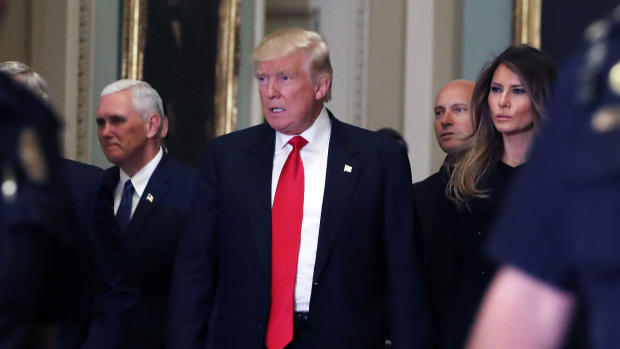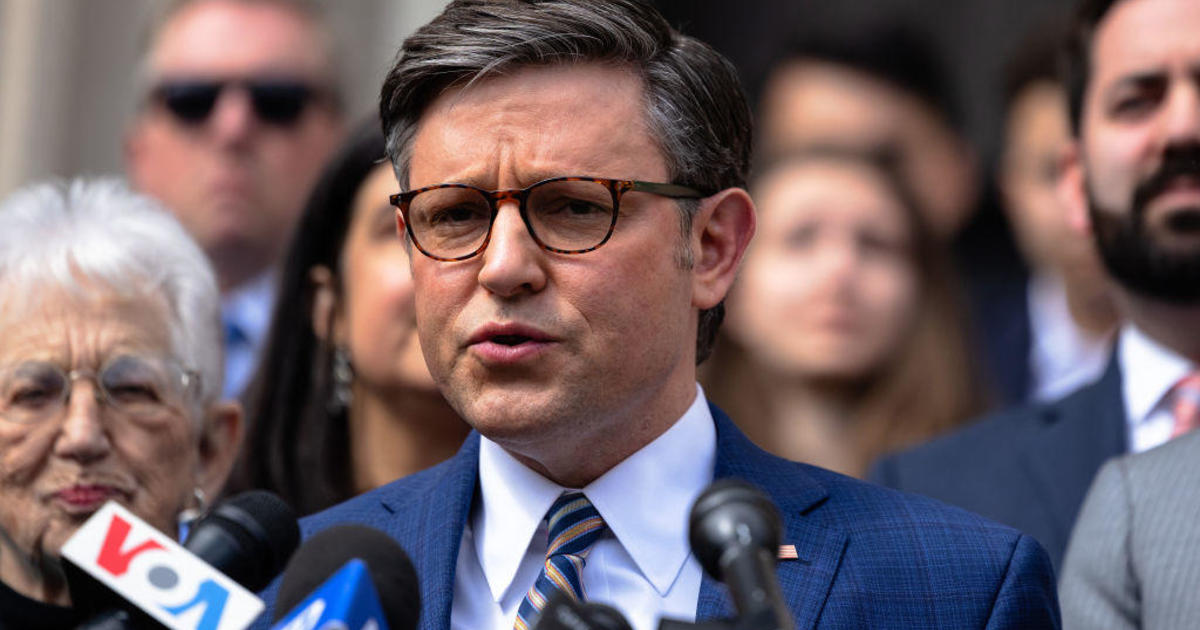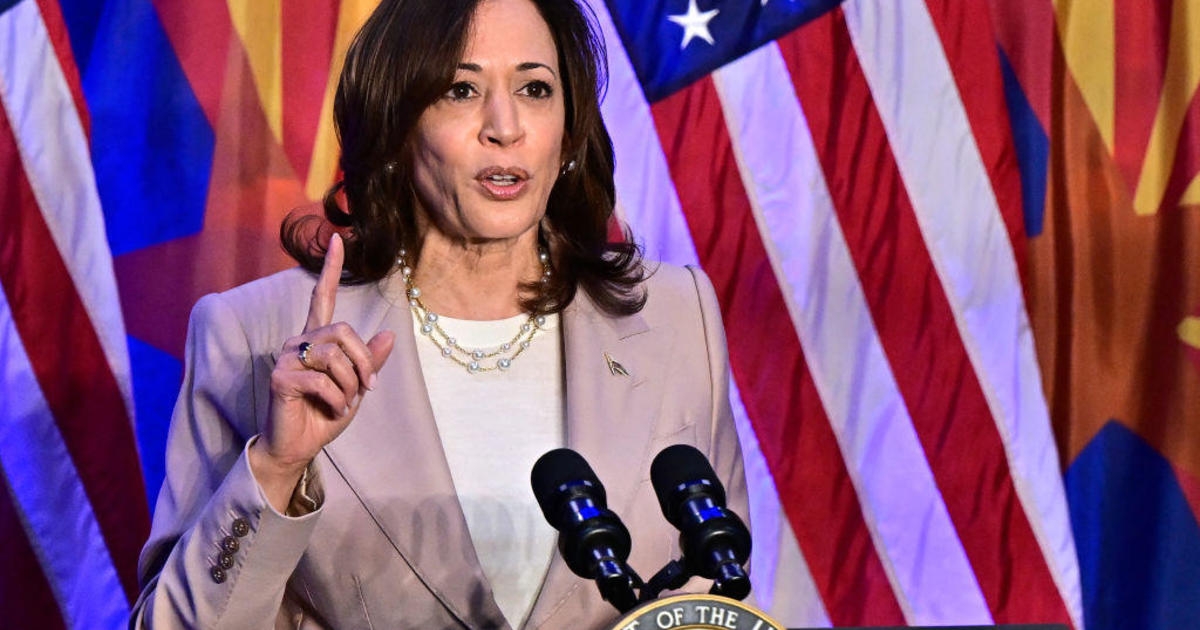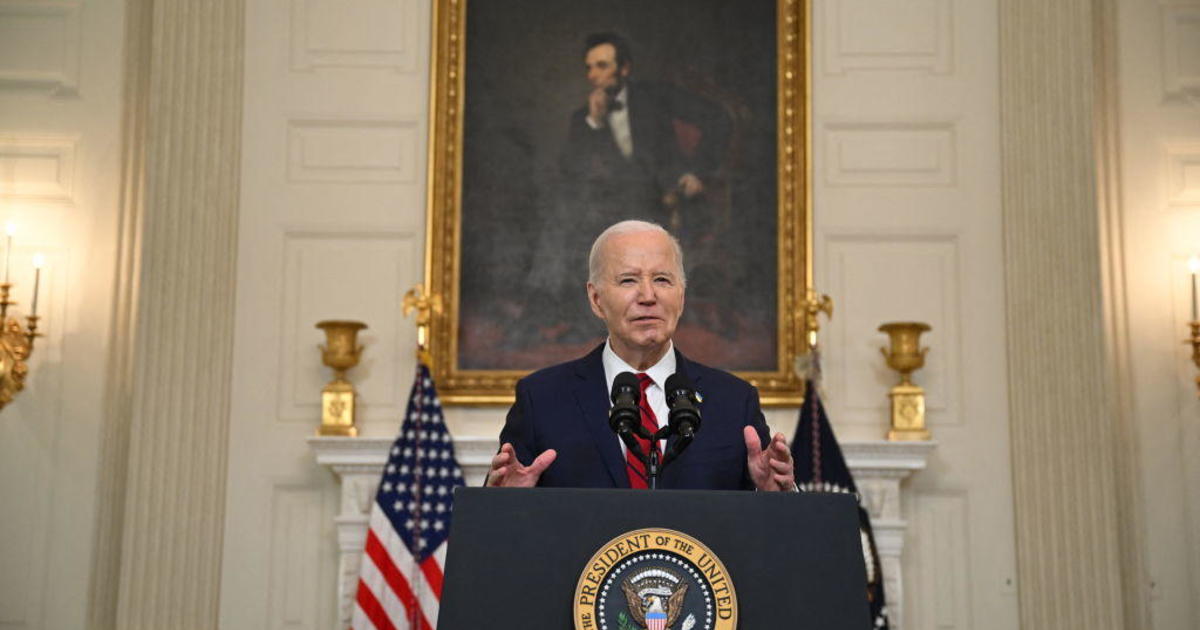White House tells Congress Kellyanne Conway won't testify about Hatch Act
Washington — The White House on Monday informed a Democratic-led congressional committee it intends to block counselor to the president Kellyanne Conway from testifying about concerns that she has engaged in prohibited political speech while working for the administration.
In a letter to the House Oversight Committee, White House counsel Pat Cipollone cited "clearly established constitutional doctrines" that allow the president to block White House staff from appearing before Congress.
"In accordance with long-standing precedent, we respectfully decline the invitation to make Ms. Conway available for testimony before the committee," Cipollone said.
Conway had been called to appear before the House Oversight Committee for a hearing on Wednesday. Two weeks ago, the nonpartisan Office of Special Counsel (OSC) found Conway had repeatedly violated the Hatch Act, which prohibits federal employees from engaging in political speech, and recommended the White House remove her from federal office. House Oversight Committee Chairman Elijah Cummings intends to vote to subpoena Conway if she doesn't show Wednesday.
Conway and President Trump insist she's being targeted for successfully championing the president, and the OSC is wrongly punishing her for exercising her First Amendment rights.
But Conway went a step further Monday, suggesting the White House isn't sure the law even applies to officials like herself.
"Well, it would be good if I really ... had a quick tutorial on the Hatch Act, what it is and what it is not," Conway told "Fox and Friends" Monday morning. "It's not even clear to us here at the White House, according to White House counsel, that the Hatch Act applies to assistants to the president."
Conway had already received "significant training" on the Hatch Act as of March 2018, according to the OSC, which claimed she violated the Hatch Act after that training.
The Hatch Act prohibits most federal employees from some political speech on the job, such as publicly supporting or opposing a political candidate for office, or wearing a candidate's campaign gear to work. The law doesn't apply to the president or vice president, so Mr. Trump and Vice President Mike Pence are exempt. But the law makes no exemptions for top White House staffers, and outgoing White House press secretary Sarah Sanders would often refrain from voicing political opinions from the briefing room podium by citing the Hatch Act, ostensibly suggesting the law applies to a senior aide like her.
But the White House counsel's office has questioned whether the Hatch Act applies to top White House aides like Conway. White House Counsel Pat Cipollone wrote in a lengthy letter to OSC on June 11 that "even assuming that the Hatch Act applies to the most senior advisers to the president in the White House, OSC has violated its statutory obligation to provide Ms. Conway a reasonable opportunity to respond, violated Conway's due process rights."
OSC, however, pointed CBS News to its report on Conway to explain why Conway falls under the Hatch Act.
"The Hatch Act restricts the political activity of 'any individual, other than the president and the vice president, employed or holding office in ... an executive agency other than the Government Accountability Office,'" the OSC report said, citing federal code.
"The White House is a component of the executive office of the president, which is considered an executive agency for purposes of the Hatch Act. Ms. Conway is a commissioned officer in the White House office and has been serving as counselor to the president since Jan. 20, 2017. Therefore, as a presidential appointee by the White House office, Ms. Conway is subject to the Hatch Act."
Kathleen Clark, a law professor at Washington University who specializes in government ethics, said just because the White House doesn't want to fall under the Hatch Act doesn't make it so.
"The Hatch Act applies to almost everyone in the executive branch except the president and the vice president," Clark said. "The Hatch Act applies to Kellyanne Conway, it applies to Cabinet secretaries ... The White House counsel's office might regret the fact that the Hatch Act applies to the Trump White House, but it applies to the Trump White House just as it has to past White Houses."
Federal employees do have First Amendment rights, Clark said, but even those rights have some limitations.
"I'm thrilled that at the Trump administration is concerned about the First Amendment," Clark said. "It doesn't seem to be so concerned when the president is referring to [journalists] as the enemy of the people."
"But the right to speak can be limited where there is a compelling governmental interest and there is a compelling government interest in ensuring government officials are not using their power and authority to engage in patrician political activity because that undermines the public trust in the government," Clark continued. "There is a place for the First Amendment absolutely and the Hatch Act is consistent with the First Amendment."
Only the president can enforce any consequences for Hatch Act violations, however, and Mr. Trump has suggested he won't. The only penalty for violating the act is removal from office.




